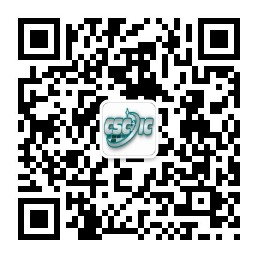International semiconductor industry organizations look forward to deepening cooperation with China
Semiconductor is the most thoroughly globalized industry, highly dependent on the regional division of labor system of globalization. Faced with various challenges in talent, innovation, energy consumption, and supply in the current semiconductor industry, enhancing international cooperation and mutual trust is the voice of industries around the world. As the world's largest semiconductor market, China not only injects confidence and vitality into the global semiconductor industry, but also becomes a key driving force for technological innovation and progress, continuously bringing innovation benefits to domestic and foreign enterprises. At the 21st China International Semiconductor Expo (IC China 2024) held from November 18th to 20th, semiconductor international organizations from countries and regions such as the United States, South Korea, Malaysia, and Brazil expressed that strengthening international cooperation is of great significance for the current development of the semiconductor industry. They look forward to enhancing collaboration with the Chinese industry in joint research and development, talent exchange, and building a more resilient supply chain. After more than half a century of development, semiconductors have formed a highly specialized supply chain system worldwide, which not only supports technological iteration in the industry, but also enables consumers to obtain cost-effective electronic products. Ji Liyun, Chief Operating Officer of the Global Semiconductor Alliance (GSA) Asia Pacific, stated that the semiconductor industry has demonstrated the achievements that can be achieved through cross-border cooperation, and the progress and future of the industry depend on the strength of partnerships. The semiconductor ecosystem is a vast and interconnected network that relies on global designers, manufacturers, suppliers, researchers, and material suppliers, with each region providing a crucial link in the puzzle. GSA hopes to continue promoting global cooperation models, focusing on new driving forces such as 5G, AI, and quantum computing, and working with industry colleagues to promote global semiconductor cooperation and the development of the global semiconductor market economy. In the global industrial landscape, China, as the world's largest producer of consumer electronics products, has the world's largest overall manufacturing scale and has been the world's largest semiconductor market for many consecutive years. Its supporting role in the semiconductor industry chain has been recognized by the international community. According to Ju Long, Global Vice President and China President of the Semiconductor Industry Association (SEMI), due to weak chip demand, global semiconductor equipment sales in 2023 will be $105.6 billion, a year-on-year decrease of 1.9%. The semiconductor equipment in Chinese Mainland will grow by 28.3% year on year in 2023, which reflects the strong demand for mature node technologies in Chinese Mainland and the vitality and resilience of industrial development. For a long time, China has adhered to the correct direction of economic globalization, promoted trade and investment liberalization and facilitation, and shared development opportunities with countries around the world through higher levels of open cooperation. Close cooperation with the Chinese semiconductor industry has also become a vision for various semiconductor hotspots. Representative Kuang Ruiqiang, Chairman of the Malaysian Semiconductor Industry Association (MSIA), expressed his hope to strengthen cooperation with the Chinese semiconductor industry in six areas. One is to establish joint research and development centers around artificial intelligence chips, low-power design, 5G, IoT applications, etc., to promote semiconductor innovation and development. The second is to enhance the diversification and resilience of the supply chain, which is the primary task of the semiconductor industry. The third is to strengthen talent exchange and development, and jointly address the shortage of semiconductor technology talents. The fourth is to promote sustainable development and green manufacturing, and achieve common environmental goals. The fifth is to strengthen industry standards and certification cooperation to ensure that products meet market safety and quality requirements. Sixth, we are jointly committed to the development of automotive semiconductors and electric vehicle technology, including innovation in power management, battery systems, and ADAS (Advanced Driver Assistance Systems) to meet the rapidly growing market demand. An Jixian, Executive Vice President of the Korea Semiconductor Industry Association (KSIA), stated that the semiconductor trade between China and South Korea continues to steadily grow, and China has become South Korea's largest semiconductor trading partner. The semiconductor trade volume between the two countries has increased from 1.4 billion US dollars in 2002 to 56 billion US dollars in 2023, a growth of about 39 times, and is expected to further increase to around 68.8 billion US dollars this year. SK Hynix and Samsung have been operating semiconductor manufacturing plants in China since 2006 and 2014, respectively. These long-term investments have greatly promoted exchanges and cooperation in the semiconductor industry between China and South Korea. China and South Korea support each other in semiconductor development and play a crucial role in the global semiconductor and electronics supply chain. Continued cooperation between the two countries will help ensure a stable supply of semiconductor and electronic products worldwide. Samir Pierce, director of the Brazilian Semiconductor Industry Association (ABISEMI), said that according to the Chinese zodiac culture, 2024 is the the Year of the Loong, representing growth, progress, leadership, energy, affluence and positive change. 2024 coincides with the 10th anniversary of the establishment of the Brazilian Semiconductor Industry Association, which is also the first time the association has participated in such a large-scale semiconductor event held in China. China is Brazil's largest trading partner to date. 2024 is also the 50th anniversary of the establishment of diplomatic relations and trade between China and Pakistan. It is hoped that the two countries will continue to expand and strengthen cooperation in various fields, especially in semiconductor design, research and development, and manufacturing, to jointly promote the development of industrial technology between the two countries and achieve mutual benefit and win-win results.

